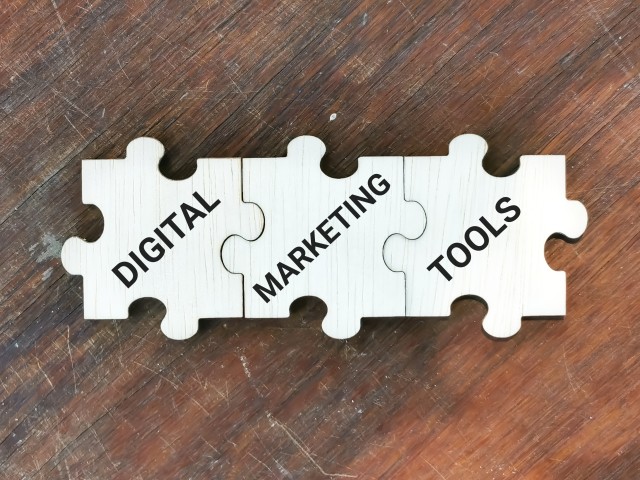The Power of Data in Marketing
Data is revolutionizing the way businesses market themselves. With the advent of advanced analytics and technology, data-driven decision-making has become a crucial aspect of successful marketing strategies.
By utilizing data, businesses can now make informed decisions based on evidence rather than instinct or guesswork. One area where data has particularly transformed marketing is in customer segmentation. Traditional methods of segmentation were often based on broad demographics or assumptions, leading to generic and ineffective marketing campaigns.
However, with the power of data, businesses can now segment their customers based on their actual behaviors, preferences, and purchase history. This allows for targeted and personalized marketing strategies that resonate with individual customers, leading to higher engagement, conversions, and customer satisfaction.
Harnessing Data for Business Success
By utilizing data analytics, you can tap into valuable insights for achieving success in your business. Data-driven decision making has become an essential component of modern business strategies.
The ability to collect, analyze, and interpret customer data gives you a competitive edge in the market. By leveraging customer insights, you can understand their preferences, behaviors, and needs, enabling you to tailor your products and services accordingly. This not only enhances customer satisfaction but also maximizes your data potential.
Data analytics can help you identify patterns, trends, and opportunities that you may have otherwise missed. It allows you to make informed decisions, optimize your marketing campaigns, and allocate resources more effectively.
Unleashing the Potential of Data-Driven Marketing
To fully tap into the potential of data-driven marketing, you’ll need to leverage customer insights to tailor your strategies and stay ahead of the competition. By analyzing customer data, businesses gain valuable insights into consumer behavior, preferences, and needs. These insights allow for the optimization of marketing campaigns, ensuring that they reach the right audience with the right message at the right time.
Through the effective use of customer insights, businesses can personalize their marketing efforts, increasing customer engagement and conversion rates. By understanding their target audience on a deeper level, businesses can create targeted campaigns that resonate with customers, leading to higher levels of brand loyalty and customer satisfaction.
In addition, leveraging customer insights can help businesses identify opportunities for innovation and growth. By analyzing data, businesses can identify gaps in the market, uncover unmet customer needs, and develop new products or services that address these needs. This data-driven approach allows businesses to stay ahead of the competition and adapt to changing market trends.
Strategies for Implementing Data-Driven Marketing
When implementing data-driven marketing strategies, you can start by identifying key customer segments and tailoring your campaigns to meet their specific needs.
Data-driven customer segmentation allows you to divide your customer base into distinct groups based on demographics, behavior, and preferences. By analyzing data collected from various sources such as customer interactions, purchase history, and website analytics, you can gain valuable insights into the characteristics and preferences of each segment.
This enables you to personalize your marketing efforts and create targeted campaigns that resonate with your customers on a deeper level. Personalization through data analysis allows you to deliver relevant and timely content, offers, and recommendations, increasing the effectiveness of your marketing campaigns and ultimately driving better business outcomes.
Key Benefits of Data-Driven Marketing
One of the key benefits of data-driven marketing is that it allows you to personalize your campaigns and deliver targeted content to your customers.
With data-driven decision making, you can analyze customer data and gain insights into their preferences, behaviors, and purchasing patterns. This enables you to create highly targeted marketing campaigns that resonate with your audience and drive better results.
By measuring campaign effectiveness using data, you can track key metrics such as click-through rates, conversion rates, and return on investment. This helps you understand which strategies are working and allows you to optimize your campaigns for maximum impact.
Data-driven marketing empowers you to make informed decisions based on concrete evidence, leading to more successful and cost-effective marketing efforts.
Case Studies: How Data-Driven Marketing Transformed Businesses
Now that you understand the key benefits of data-driven marketing, let’s delve into some real-world examples of its success.
These case studies will demonstrate how businesses have transformed themselves through data-driven strategies.
One notable success story is that of Netflix. By analyzing user data, Netflix gained insights into customer preferences and behavior. This allowed them to personalize recommendations and content, resulting in increased customer satisfaction and loyalty. As a result, Netflix has grown into a global streaming giant.
Another example is Amazon. Through data-driven marketing, Amazon has streamlined its e-commerce experience. By analyzing customer data, they can provide personalized product recommendations and targeted advertising. This has led to higher conversion rates and increased sales for the company.
These success stories highlight the power of data-driven marketing in driving business growth and customer engagement. By leveraging data effectively, businesses can gain a competitive edge and better understand their customers’ needs and preferences.
Conclusion
In conclusion, data-driven marketing has emerged as a game changer for businesses, revolutionizing the way they understand and engage with customers.
By harnessing the power of data and implementing strategies that leverage this valuable resource, companies can unlock unprecedented opportunities for success.
The benefits of data-driven marketing are evident in numerous case studies, where businesses have experienced transformational growth and increased customer satisfaction.
It is clear that embracing data-driven marketing is essential for businesses looking to stay competitive in today’s fast-paced digital landscape.

